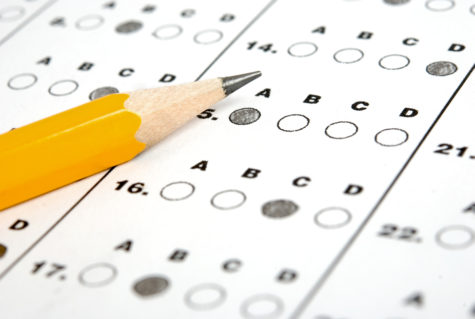Freshman 15 And How To Avoid It

May 20, 2019
Freshman 15 (according to medical-dictionary.thefreedictionary.com)
A popular term for a ‘rite of passage’ affecting many American students in the first—freshman—year of college or university in which they live away from home. Food consumption often becomes more erratic and the diet more indiscriminate than is more typical of relatively scheduled and balanced meals of home life with their parents. The number 15 refers to the pounds gained during this period.
Freshman 15 (for dummies): it’s the 15 pounds that students stereotypically gain in their first year of college, but you don’t need the definition to know what I’m talking about. I don’t know about you, but the Freshman 15 is one of the first things my parents told me about college. They made it sound like it happened to everyone with few-to-no exceptions. However, there is a way to conquer unwanted the weight gain.
In most cases, the stress is what causes new college freshmans to gain the weight. They’re trying to balance the new area and new clases and keeping good grades and extracurriculars and new people….. The list goes on. According to Dr. Pamela Peeke from Great Value Colleges, “Even if you usually eat well and exercise, chronic high stress can prevent you from losing weight—or even add pounds.” That means those who have high stress levels will need to work even harder to avoid the Freshman 15.
Other than the obvious fixes that you’ve heard your whole life -eat healthy, exercise, drink water- there are some slightly surprising solutions to think about, too.
- Work out with Friends
Working out alone kind of sucks. Plus, half the time we skip out on working out. It’s always the first thing to get crossed off the list. “Oh, I’ll do that tomorrow.” “I don’t have enough time. Next week.” But, with friends, they can help motivate you to get up and do the work. It also makes it harder to cancel your workouts because someone is counting on you to go with them.
- Buy Healthier Snacks
Instead of buying chips, cookies, and ramen to stash in your dorm, buy foods like
- DON’T Follow the Fad Diets
Fad diets only help you lose weight fast, but it’s no good as a long term solution. In fact, some fad diets are actually extremely unhealthy, making people dehydrate themselves so that they can lose water weight. However, as soon as they drink water again, that water weight will come back and ruin their “progress.”
- Get Good Sleep
Believe it or not, not getting enough sleep can contribute to weight gain. When students get less sleep, it can cause the release of a hormone that makes them hungrier. Thanks to the hormone students are eating more to satisfy the hunger and, therefore, gaining weight.
- Get Credits for Exercising
Did you know that some classes will give you credits for exercising a certain amount of times per week? According to Greatvaluecolleges.net “Many schools offer majors like kinesiology (sports science) and public health. Typically, these majors will offer a few activity classes or classes focused on nutrition that even non-majors can take for credit.” If you’re like me, a good grade is better motivation than a thin body. But, if you’re not like me and the aesthetic is your motivation, use the class to boost your GPA.
Now, I’m sorry, but I’m going to tell you something you don’t want to hear. You’ve heard it before and you’re going to hear it many times again, so here’s the lecture from me: You are beautiful/handsome/attractive no matter how much you weigh. You don’t need to fit into anyone’s standard of beauty. Even if you do end up gaining weight in college, that does not make you unloveable. Looks aren’t everything. Besides, the people around you will almost always see you as more beautiful than you see yourself. Be confident, be kind, and remember that you are enough.











